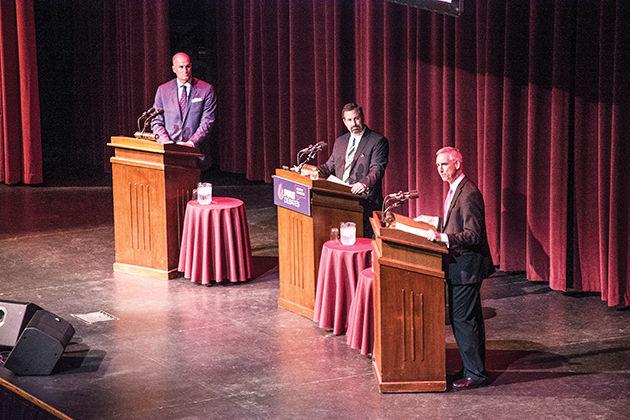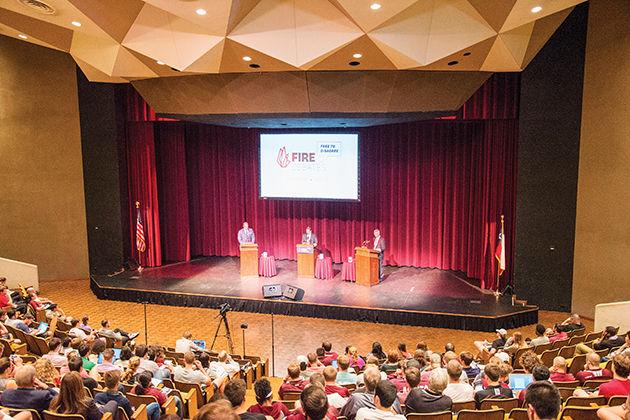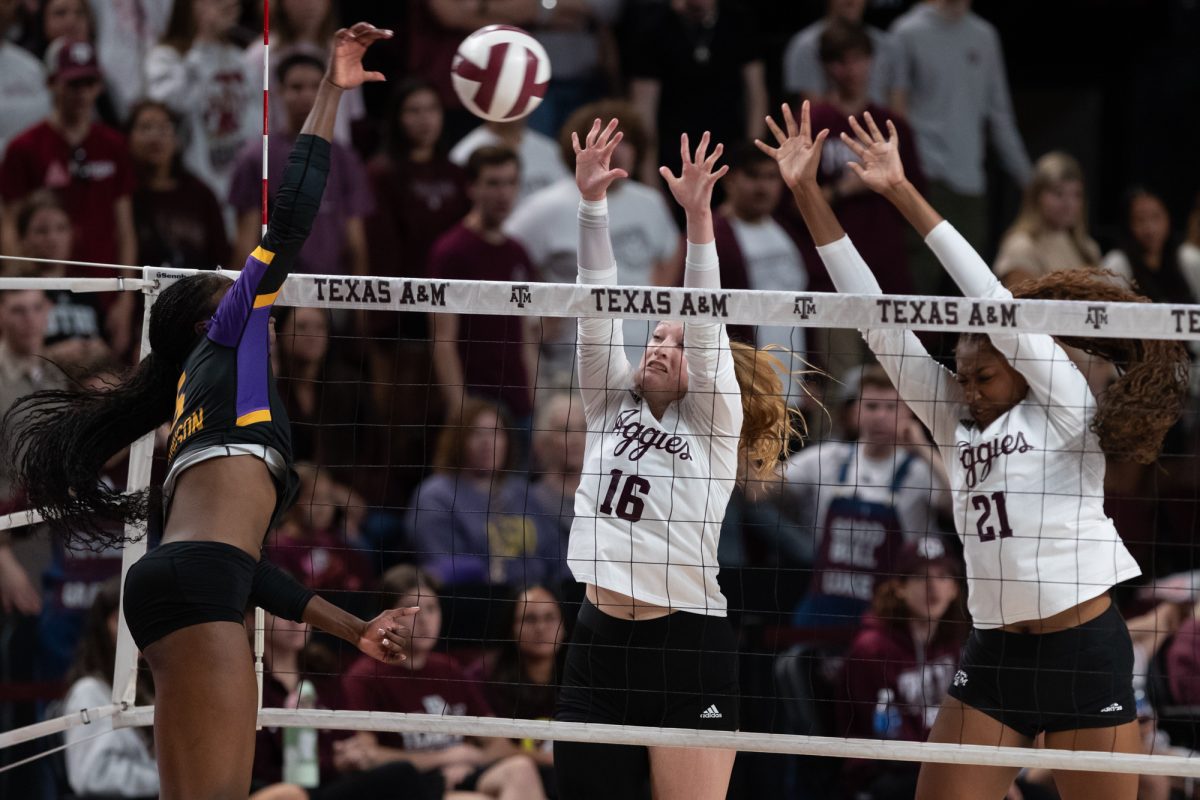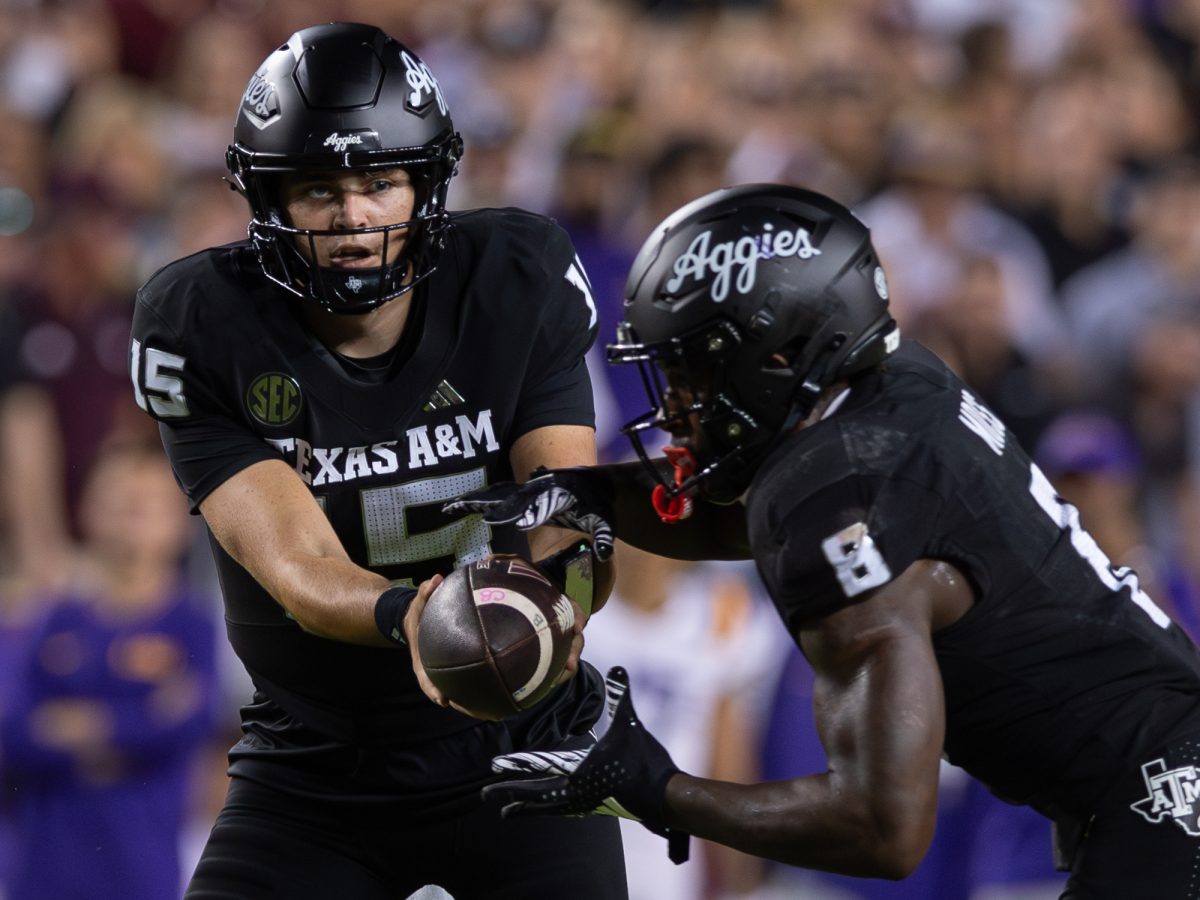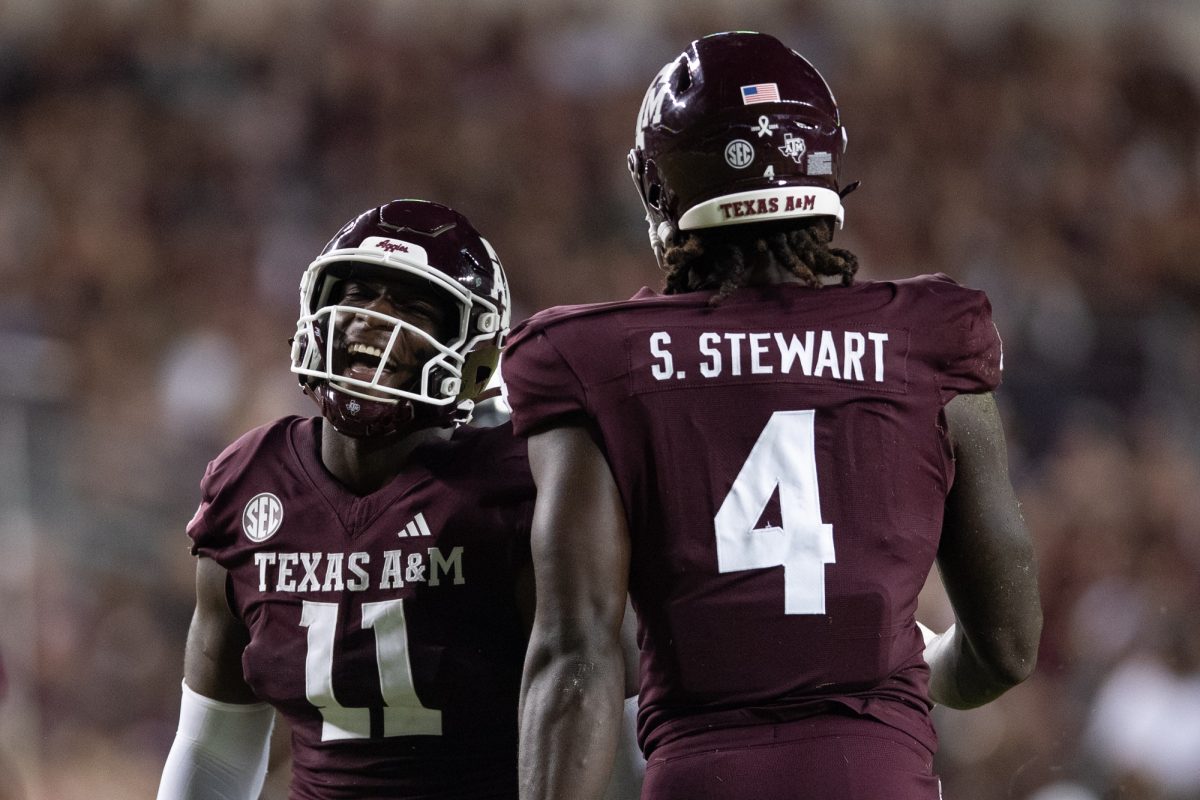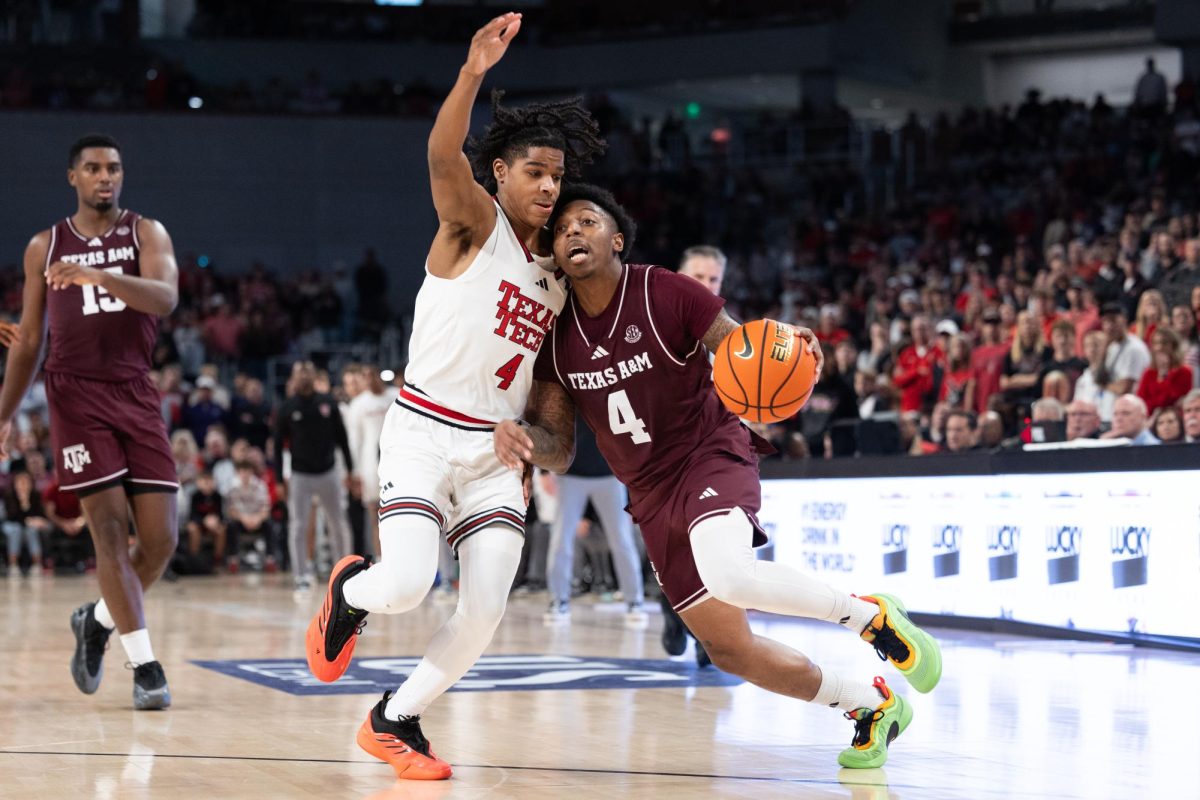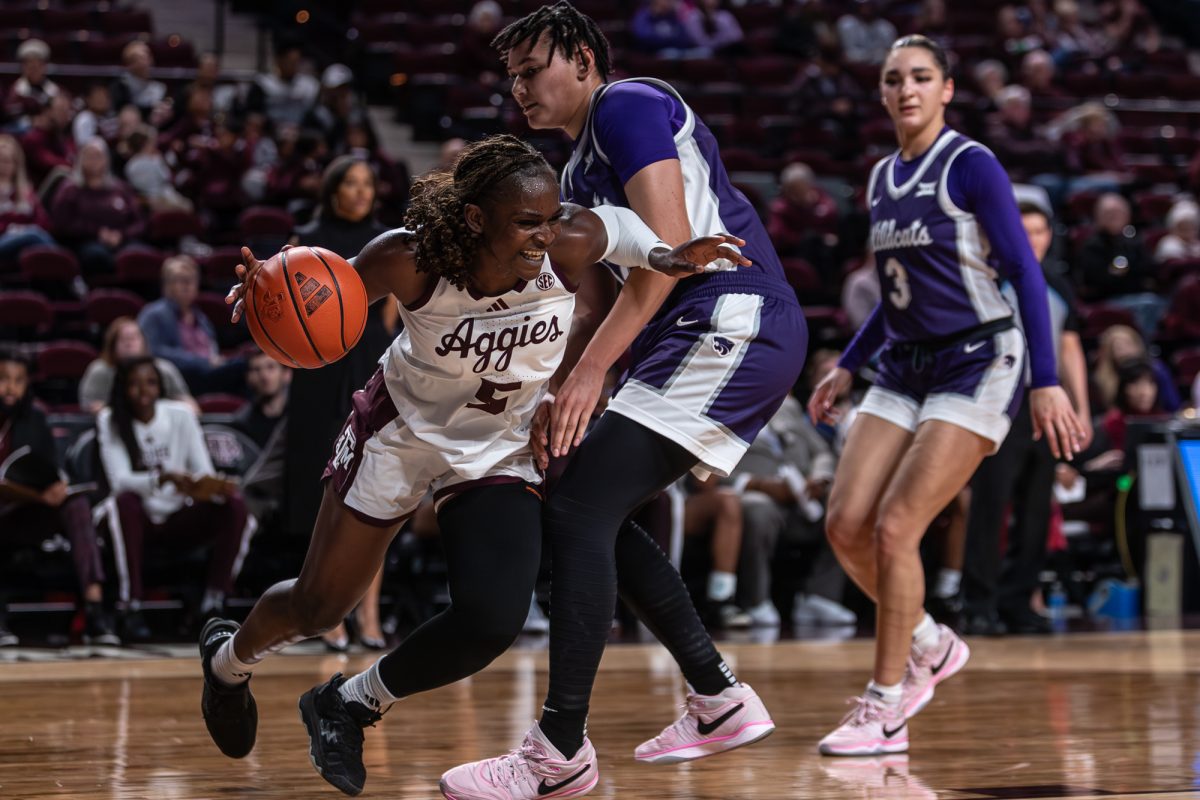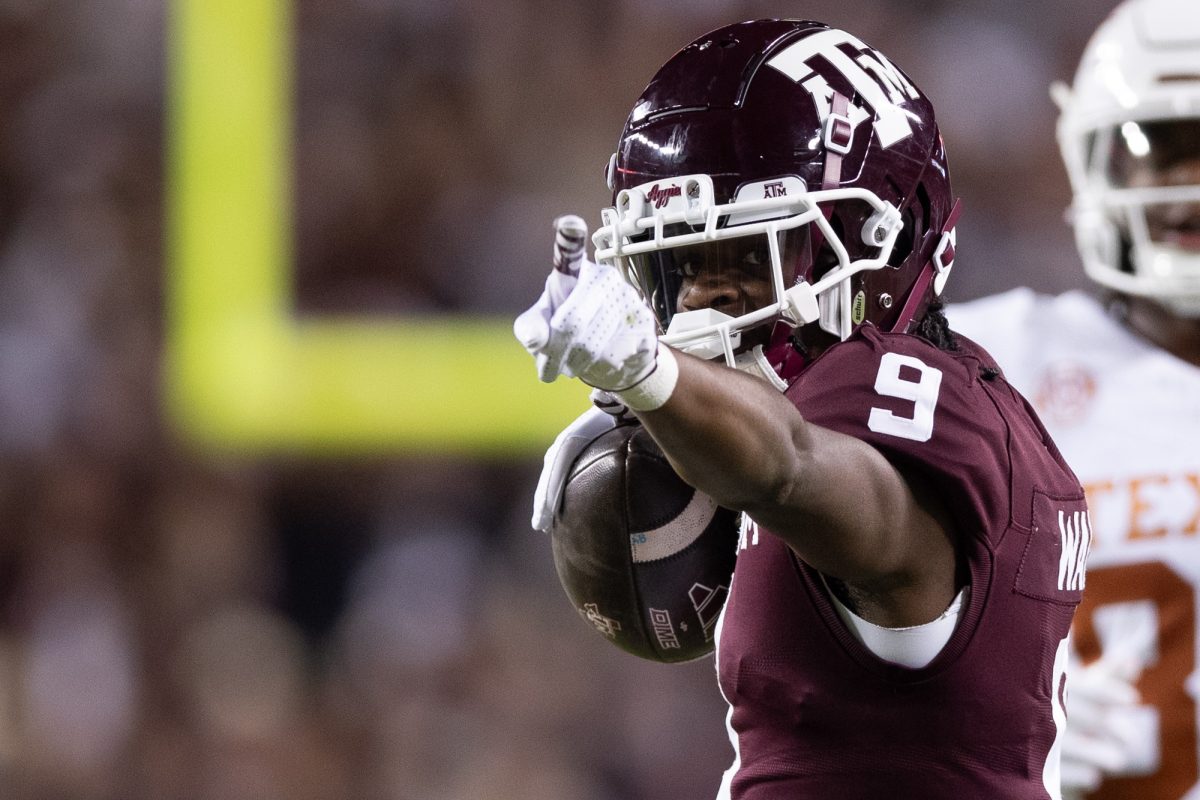Although only dozens of Division I student athletes were in attendance, the estimated 460,000 of them nation-wide were represented in Rudder Theatre Tuesday night.
The Foundation for Individual Rights in Education, FIRE, hosted a debate on whether or not college student athletes should be paid between ESPN’s Jay Bilas and the National Collegiate Athletic Association’s Oliver Luck. Darryl Bruffett, who has been the sports director for KBTX since 1990, served as the moderator for the hour-long event.
Luck, the former athletic director for West Virginia University and current executive vice president of regulatory affairs at the NCAA, argued against paying collegiate athletes. Luck said the educational value a student athlete receives during their time at college provides enough compensation. Luck said collegiate athletes will require agents if they are paid, adding an unnecessary detraction from their education.
“You’ve got a triangle,” Luck said. “We’ve got your academics, we have your athletics and you have your social life. If you turn that triangle into a square and add another component of marketing and promoting yourself, there is just simply no time for a student to do that.”
Bilas, who was a four-year starter in the 1980s at Duke University under head basketball coach Mike Krzyzewski, is a lawyer and a studio analyst for “College GameDay.” He said the money the NCAA generates — almost $1 billion in the 2014 fiscal year — shows an exploitation of the players who are the focal point for that revenue. Bilas said student athletes should earn their fair market value.
“Athletes are not mistreated, but they are exploited,” Bilas said. “Anytime that you are making money off another, while at the same time restricting that person from making money, you are by definition exploiting that person.”
Like Bilas, Luck played collegiate sports. He also has a son, Andrew, who played football at Stanford University. Luck said when he was the back-up quarterback for the Houston Oilers, it allowed him no time to focus on law school. He said unlike professional teams, colleges stress the importance of learning and obtaining a degree.
In his opening statement, Bilas touched on a common educational argument. He said players can receive pay-for-play and continue to further their studies in school.
“Money and education are not mutually exclusive,” Bilas said. “And how do we know this? How is that proven? It is proven by the fact that no other student is limited in what he or she can accept, and still be a student in good standing.”
Moreover, Bilas said there are no issues with professional athletes who play in other collegiate sports. He said he has a daughter — a college junior — who is passionate about art, and she can make money off her work while an athlete cannot. Bilas said like bringing in the College Football Playoff, people may never know what ramifications will occur if the NCAA decides in favor for pay-for-play.
“The College Football Playoff just started after years of us being told, ‘They will never have a football playoff — we can never do it. It’s too complicated. They can’t do it,'” Bilas said. “And in a year, they did it and made a billion dollars.”
Luck said the head officials in the NCAA and other associations mutually agree the primary focus for a student-athlete is their education. Luck continued and said some universities stated they would form a separate league if pay-for-play was set into place, and Title IX would provide issues as well.
“If you theoretically set it up with a salary-cap type thing for your football team, you would have to set up a salary cap for 85 females,” Luck said. “I would not want to be the A.D. or the president of the school where we did not do that because I’d have Title IX lawsuits the next morning at 6 a.m.”
When told Luck said this, Bilas dismissed the lawsuit possibility and said it has not been brought up in the pay-for-play court cases. Overall, Bilas said the definition of an amateur has changed overtime and the money is there to provide, especially with the increasing salary college coaches are receiving and the influx of expensive facilities being built.
At the end of the debate, the two stressed that they respect each other’s viewpoints and look forward to discussing the topic in the future. FIRE, the non-profit organization hosting the event, plans to further that conversation with three more debates at different college campuses.



